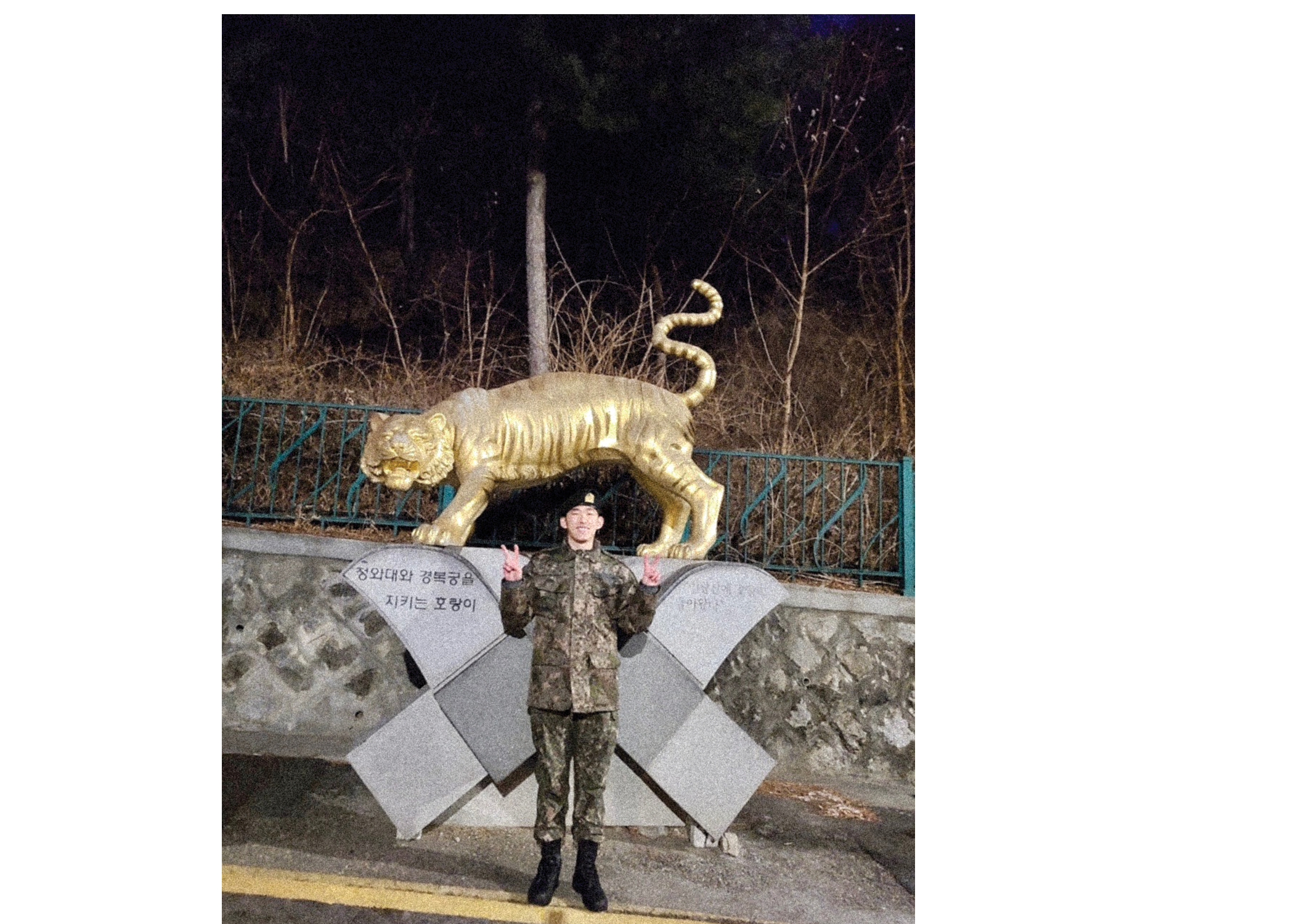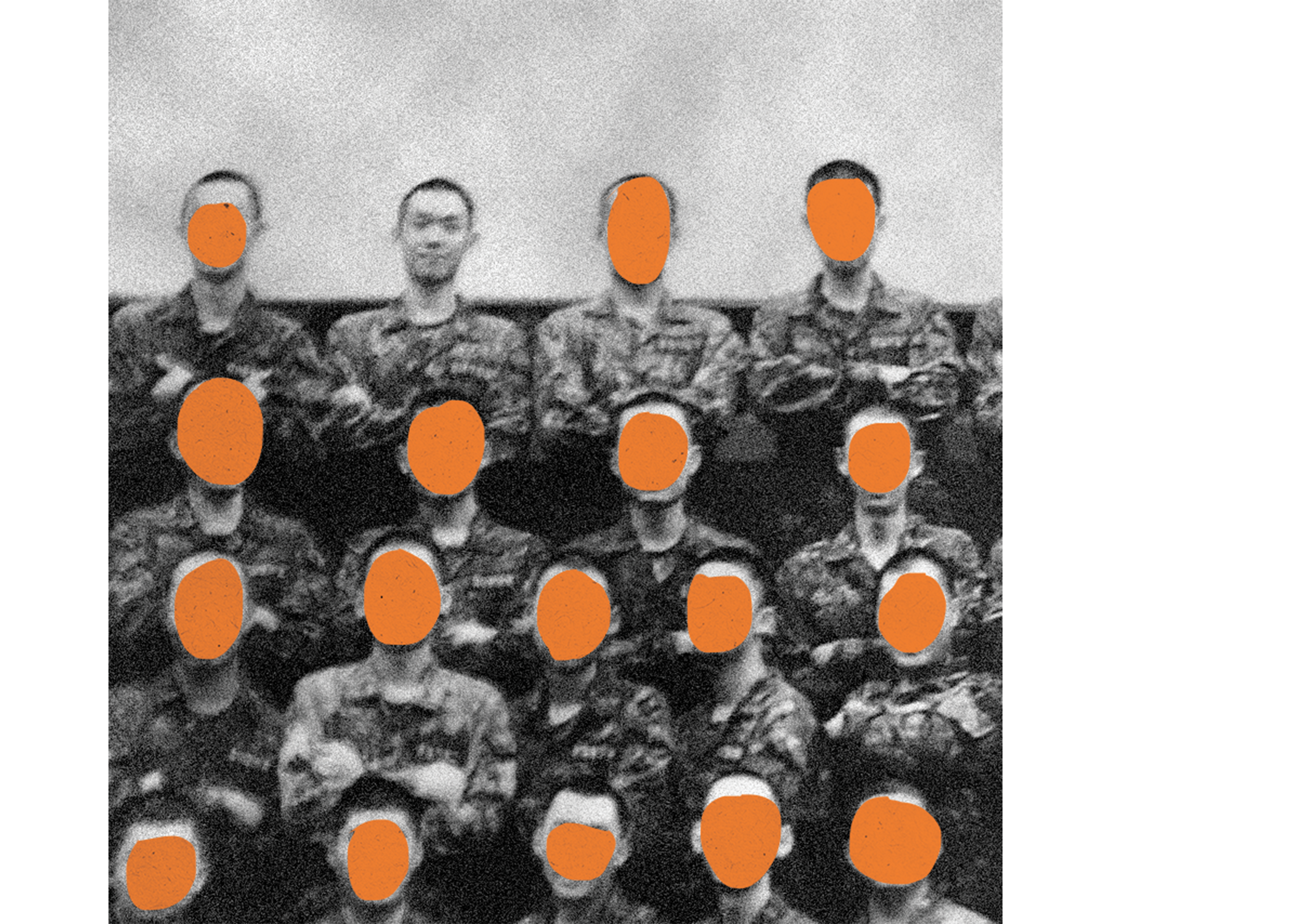
When duty calls
Students balance military duty and student life.
by Chloe Park
The summer before he started college, McCormick third-year Taewon Yoon joined Instagram and Discord communities to meet fellow incoming students. Unlike most of his classmates, he faced a daunting dilemma — deciding when to fulfill his mandatory military service back home in South Korea.
According to Yoon, most South Korean students enlist in the military after their first or second year of college. His plans shifted when the COVID-19 pandemic hit. Rather than enrolling in online classes for a year before taking time off, he decided to enlist before he started college, from September 2020 to March 2022.
When he returned as a first-year, the friends he had made online were already two years ahead.
“It was definitely sad not being able to meet them,” Yoon says. “But as I look back, I think I made the right choice.Especially for my grade, the COVID year, because the first couple of years were done online, a lot of my friends that went to the military after a year or two in college don’t have a lot of friends after coming back.”
While South Korea currently mandates a year and a half of military service for male citizens, conscription processes across Asia do not consistently follow the same protocol. Places like Singapore, Myanmar and Taiwan have shifting expectations based on their geopolitical conditions. For example, Myanmar’s junta enforced a once-dormant conscription law in early 2024 amid battles with ethnic militias and anti-coup fighters.
With governments continuing their service requirements, international students face disruptions to their education and social lives as they are called home to serve overseas.
McCormick fourth-year Dylan Wu says the draft has at times been uncertain, and in his last months at NU, he’ll have to readjust to student life. Though he left for Taiwan in the spring of 2024 and plans to return next quarter, marking a full year off campus, he only served for a fraction of his time off, starting in September.
The conscription age in Taiwan is 18, but students pursuing higher education are often granted deferments from the draft. Regardless, most men must complete their service by 36.
Born in 2003, Wu was only required to serve for four months. Taiwanese citizens born after 2005 are now required to serve for one year.
This change is part of a broader evolution in Taiwan’s conscription politics. In the 1950s, tensions with China led to strict military service requirements. Citizens were expected to serve for two to three years until martial law was lifted in 1987 and the length of conscription was gradually reduced to four months. However, then-President Tsai Ing-wen announced in 2022 that Taiwan would extend its compulsory military service to a full year starting in 2024 due to growing pressure from the Chinese military in recent years.
“Four months is really limited time, so there isn’t really a whole lot of things they could teach you,” Wu says. “And the fact that they’re also doing two months of deployment — it’s not all boot camp. We basically learned how to shoot a rifle and that’s kind of it, and the rifle is like 50 years old.”
Wu says the role of military service becomes more important as the service period increases. He says he started his service thinking it could be an opportunity to learn, but after four months, it started to feel like a waste of time.
As a senior who has already secured his post-graduation plans, Wu’s concerns about returning to Northwestern primarily revolve around reintegrating into college social life.
“It’s definitely putting a lot of strain on my friendships in Northwestern because a lot of my friends are actually graduating early,” Wu says. “When I left, it was basically the last time that I’ll get to see them unless after graduation.”
When he returns, Wu aims to rejoin the organizations he was a part of before leaving for military service, such as Northwestern’s Develop and Innovate for Social Change club. In his last quarter at Northwestern, he hopes to connect with friends who are still on campus and keep in contact with them once they graduate.
Wu is not the only student who sees military service as a disruption to his social and academic life. Yoon says losing two years of his life to military service has made him feel like he had a slow start to college compared to his peers.
“I’m already 23 and now I’m a junior,” Yoon says. “All my friends have already graduated a couple years ago and they’re already working. I’m still in college.”
While he acknowledges the value of compulsory service given South Korea’s ongoing military standoff with North Korea, he says his personal experience was largely unproductive, as COVID-19 restrictions prevented him from participating in military exercises, leaving him with excessive free time.
Yoon says feeling too old is common among those who have returned from military service. His roommates, who also served in South Korea at different times, avoid attending some parties or events because they worry about being surrounded by students who are “too young.”
“A lot of people don’t know about it, but there is a small community of ex-military people,” Yoon says. “And I feel like we bond along together based on our similar factors.”
SESP first-year Joseph Oh, who plans to enlist in the South Korean military in the fall, also relies on such communities to cope with the challenges of military service.
“I have friends who will be returning with me to Northwestern, so I think that’ll definitely help with re-adjusting and being part of a social scene,” Oh says.
Oh shares Yoon and Wu’s sentiments, saying that military service can feel burdensome, particularly as most of his peers are not required to serve. Still, he says military service is his obligation as a South Korean citizen and even sees it as an opportunity to live in the moment.
“Even if I join a really selective club, there’s a chance that I have to reapply or adjust to the club atmosphere from the start again once I’m back from military service,” Oh says. “So I think it’s rather allowing me to slow things down and really enjoy my first year.”
Weinberg second-year Josh Lake says Singapore’s compulsory military service is an important opportunity to develop discipline, accountability and resilience. Like Yoon, Lake enlisted in the military after graduating high school and before attending Northwestern.
Because of its strained ties with its neighbors, Malaysia and Indonesia, Singapore placed a heavy emphasis on self-defense. Its parliament passed the National Service (Amendment) Bill in 1967, requiring all eligible male citizens to serve in the military soon after they complete secondary education, with limited flexibility in choosing the date of service.
Lake served in the National Service for 22 months before attending Northwestern, where his younger sister is now a grade ahead of him, despite being a year younger. Though he dubs this arrangement “unconventional,” Lake says he values his post-high school progression.
“Having an extra two years to think longer and harder about what you want to do and what you value and find meaningful is a huge opportunity,” Lake says.
Lake says he learned more social and life skills from his first three months at basic training than he did during high school, as he was introduced to draftees from all different backgrounds.
He specifically recalls undertaking field exercises in the jungle and learning to persevere through the rigor alongside teammates.
“You can’t just take out your phone and call someone,” Lake says. “When you’re in the field, you don’t have anyone else to carry you through the situation other than yourself and your peers.”
For Lake, serving in National Service imbued him with a sense of national pride and self-fulfillment. The draft didn’t affect his outlook on future plans. Rather, it taught him that life is not a race and to treasure his family, friends and time.
Military service can feel like an interruption to students’ academic and social aspirations. But students like Yoon, Wu, Oh and Lake have found ways to navigate its challenges — whether by forming supportive communities, building resilience or learning to cherish their education and future. As they return to familiar faces and classes, they carry with them a newfound clarity and appreciation for what matters most.
“It changed my outlook for the better,” Lake says. “There are challenges, but no bad experiences.”

